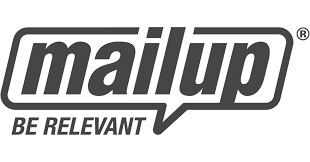Welcome to the ultimate face-off in the world of email marketing for 2024 – Mailjet versus MailUp. In the digital era, where email marketing continues to be a critical tool for connecting with audiences, choosing the right platform can be a make-or-break decision for businesses. Through this article, we’ll dive deep into the features, strengths, and limitations of both Mailjet and MailUp, helping you decide which tool is the best fit for your email marketing needs.
| Mailjet | MailUp |
|---|---|
 |  |
| G2 Score – 4.0 out of 5 stars | G2 Score – 3.7 out of 5 stars |
| TrustRadius Score – 7.9 out of 10 | TrustRadius Score – 6.0 out of 10 |
User Interface and Ease of Use: The Entry Point to Email Marketing
When diving into the world of email marketing, the interface of the tool you choose is your first point of contact and can significantly influence your overall experience. It’s essential for this interface to be intuitive, welcoming, and efficient, particularly for those who are either new to email marketing or prefer a straightforward approach. In this detailed comparison, we’ll delve into how Mailjet and MailUp fare in terms of user interface and ease of use.
Mailjet: Embodying Simplicity and Functionality
Imagine walking into a well-lit, neatly organized room where everything is within reach and exactly where you expect it to be. That’s the kind of user experience Mailjet offers. Known for its user-friendliness, Mailjet presents an interface that is both intuitive and functional. It’s designed with the user in mind, ensuring that even those with minimal technical expertise can navigate it with ease.
From the moment you sign up, Mailjet feels welcoming. The dashboard is cleanly laid out, with clear directions and a minimalistic design that avoids overwhelming new users. Every feature, from creating a new email campaign to managing your contact lists, is accessible with just a few clicks. This simplicity, however, doesn’t come at the cost of functionality. Mailjet manages to balance ease of use with a comprehensive set of features, making it suitable not just for beginners but also for more experienced marketers who appreciate efficiency and a clutter-free workspace.
MailUp: A Feature-Rich Platform for the Experienced User
Now, envision entering a high-tech control room, with various screens displaying intricate data and controls. This is akin to the user experience offered by MailUp. It is a platform that boasts a rich array of features designed to cater to users looking for depth and control in their email marketing tools. While this makes it a powerful platform, it also brings with it a steeper learning curve compared to Mailjet.
MailUp’s interface is packed with tools and settings that allow for detailed management and customization of email campaigns. It offers everything from advanced list management to dynamic content creation and sophisticated automation workflows. However, the abundance of features means that new users might find it overwhelming at first. Navigating through MailUp’s interface and making the most of its capabilities might require some time and commitment. That said, for those willing to climb the learning curve, MailUp offers a level of control and customization that can be highly rewarding.
The Verdict on User Interface and Ease of Use
In summary, if your priority is a straightforward, no-fuss experience that allows you to quickly set up and launch campaigns, Mailjet is the ideal choice. Its user-friendly interface makes it accessible to users of all skill levels, without compromising on the essential features of an effective email marketing tool. On the other hand, MailUp is more suited for users who are comfortable navigating a more complex interface and are looking for a comprehensive set of advanced features to fine-tune their email marketing campaigns. Your choice will depend on your comfort level with technology and the specific requirements of your email marketing strategy.
Integration Capabilities: Connecting Your Marketing Ecosystem
In the digital age, the effectiveness of an email marketing tool is not just judged by its standalone features, but also by how well it integrates with other marketing tools and systems. The integration capabilities of an email marketing platform can significantly enhance your overall marketing strategy, creating a seamless flow of data and processes. Let’s take a closer look at how Mailjet and MailUp perform in this vital area.
Mailjet: The Versatile Connector
Mailjet comes across as a tool designed with connectivity at its core. It acts as a bridge between various aspects of your digital marketing strategy, enabling you to create a more cohesive and efficient workflow. This approach to integration is particularly beneficial for businesses that use a range of tools for different marketing functions and seek to streamline their operations.
What stands out with Mailjet is its ability to integrate smoothly with a diverse array of platforms. Whether it’s CRM systems, e-commerce platforms, or other marketing tools, Mailjet provides straightforward connectivity. This seamless integration allows for easy data syncing and automation across different marketing channels, enhancing the overall effectiveness of your marketing efforts. The integration process itself is user-friendly, requiring minimal technical know-how, which makes Mailjet a great option for businesses of all sizes looking to connect their marketing ecosystem without the need for complex technical setup.
MailUp: Deep and Robust Integration for Complex Needs
MailUp takes a more robust and technical approach to integration. Designed for users who require deep and comprehensive integration capabilities, MailUp is like the central cog in a larger marketing machine, connecting various components for a more efficient overall system.
MailUp excels in providing integrations that offer more than just basic connectivity. Its strength lies in its ability to deeply integrate with other systems, allowing for a high level of data utilization and automation. This includes advanced features like dynamic content generation based on data from CRM systems, detailed subscriber segmentation, and triggering emails based on specific actions in other platforms. While this level of integration capability is a boon for businesses with complex needs, it does require a certain level of technical proficiency to set up and manage effectively.
The Verdict on Integration Capabilities
If your goal is to have an email marketing tool that integrates effortlessly with a wide range of other tools, providing a streamlined and simplified marketing process, Mailjet is an ideal choice. Its user-friendly approach to integration makes it suitable for businesses that want connectivity without complexity. However, if your business demands more in-depth integration that allows for sophisticated data utilization and highly personalized marketing automation, MailUp is the way to go, provided you have the technical resources to fully leverage its advanced capabilities. Your decision will depend on the complexity of your marketing infrastructure and the level of integration required to support your business goals.
Deliverability: Ensuring Your Emails Hit the Mark
In the realm of email marketing, deliverability is a critical factor that can make or break your campaigns. It’s not just about sending emails; it’s about ensuring they reach the intended inbox, thus increasing the chances of engagement and conversion. Let’s delve into how Mailjet and MailUp address this pivotal aspect.
Mailjet: The Reliable Sender
Mailjet is like the reliable postman who knows all the best routes and ensures your emails reach their destination consistently. It places a strong emphasis on email deliverability and employs best practices to ensure your messages avoid the dreaded spam folder and land where they should: your subscribers’ inboxes.
One of Mailjet’s key strengths is its proactive approach to deliverability management. The platform provides features like automated IP warming, list management tools, and insightful analytics. These tools are essential for maintaining a positive sender reputation, which is crucial for ensuring your emails are delivered reliably. By monitoring your sending patterns, list hygiene, and engagement metrics, Mailjet empowers you to make data-driven decisions to improve your deliverability rates.
MailUp: Strategic Delivery
MailUp takes a strategic approach to email delivery, similar to a skilled archer who knows how to hit the bullseye. It offers advanced tools and settings to optimize your email campaigns for the best possible inbox placement.
MailUp provides a comprehensive suite of deliverability features. These include detailed list segmentation, personalized sending options, and strategic sending based on subscriber behaviors. These tools help improve the relevance of your emails, a critical factor in maintaining high deliverability rates. For businesses seeking to take a hands-on and data-driven approach to manage deliverability, MailUp offers the necessary tools.
The Verdict on Deliverability
In summary, Mailjet is an excellent choice for businesses that prioritize reliable and straightforward email delivery. Its user-friendly approach to deliverability management makes it suitable for a wide range of users. On the other hand, MailUp excels in providing advanced deliverability features, making it the ideal choice for those who require a more in-depth, data-driven strategy to maintain high deliverability rates. Your choice between the two will depend on your specific deliverability needs and your level of expertise in managing email campaigns effectively.

Related: Check out our free SEO suite

Analytics and Reporting: Unlocking Insights from Your Campaigns
Analyzing and understanding your email campaign’s performance is crucial for making informed decisions and optimizing your marketing strategy. It’s like having a compass that guides your path. Let’s explore how Mailjet and MailUp provide you with the tools to unlock valuable insights from your email campaigns.
Mailjet: Clear and Actionable Insights
Mailjet offers analytics in a clear and actionable manner. Think of it as a dashboard that provides a quick and straightforward overview of your campaign’s performance. It presents essential metrics such as open rates, click rates, bounce rates, and more in an easily digestible format.
Mailjet’s analytics stand out for their user-friendliness. The platform simplifies complex data into understandable insights, making it accessible to users of all skill levels. This is particularly beneficial for smaller teams or marketers who are new to email marketing. With Mailjet, you can quickly grasp the performance of your campaigns and take immediate action to improve results without feeling overwhelmed by data.
MailUp: Comprehensive and In-Depth Insights
MailUp takes a deep dive into analytics and reporting, offering a more comprehensive view of your campaign’s performance. It’s like having a detailed report that not only shows how your campaigns are doing but also provides in-depth insights into various aspects.
MailUp’s strength in analytics lies in its ability to provide detailed data suitable for strategic decision-making. It offers a wide range of metrics and customizable reports, allowing you to analyze your campaigns based on various parameters. This depth of information is particularly useful for larger businesses or those with complex email marketing campaigns, where detailed metrics can be instrumental in shaping strategy and improving engagement.
The Verdict on Analytics and Reporting
In summary, if you need straightforward, easy-to-understand analytics to quickly assess your campaign’s performance and make immediate improvements, Mailjet is an excellent choice. It provides a user-friendly interface that simplifies data interpretation. On the other hand, if you require detailed reporting and in-depth analysis to inform complex email strategies, MailUp’s comprehensive analytics will be more beneficial. It offers a wide range of metrics and customization options to cater to the needs of advanced marketers. Your choice between the two will depend on the level of data granularity you require for your email marketing efforts.
Automation and Personalization: Crafting Targeted Email Campaigns
In the realm of email marketing, the power of automation and personalization cannot be overstated. These features enable you to engage your audience effectively and tailor your messages to their specific needs and behaviors. Let’s delve into how Mailjet and MailUp empower you to create automated and highly personalized email campaigns.
Mailjet: Streamlining Email Automation
Mailjet offers a user-friendly approach to email automation, making it accessible and effective for users of all skill levels. It’s like having an efficient assistant who takes care of repetitive tasks, allowing you to focus on crafting the perfect message.
With Mailjet, personalization is about combining simplicity with effectiveness. You can easily tailor your emails based on subscriber data, such as names and preferences. While the personalization features in Mailjet are not overly complex, they are sufficient for creating engaging and targeted email campaigns. For example, you can send personalized recommendations to customers based on their past purchase history, enhancing the relevancy of your messages.
MailUp: Advanced Automation for Detailed Campaigns
MailUp takes a more sophisticated approach to automation, ideal for businesses seeking to execute complex, multi-layered email campaigns. It’s like having a highly skilled team that can execute intricate tasks seamlessly.
Where MailUp truly shines is in its deep personalization capabilities. It goes beyond basic customization, enabling you to segment your audience finely and tailor your communications based on comprehensive subscriber data. For instance, you can create highly targeted campaigns that trigger based on specific user actions, such as website visits or email interactions. This level of personalization is perfect for businesses aiming to provide highly relevant and engaging email experiences.
MailUp also excels in creating intricate automation workflows. You can set up sequences of emails with conditional triggers, ensuring that your subscribers receive messages based on their interactions and behaviors. This level of automation is well-suited for businesses with complex customer journeys or those aiming to nurture leads through a series of tailored communications.
The Verdict on Automation and Personalization
In summary, Mailjet is an excellent choice for those who need a user-friendly platform for straightforward email automation and basic yet effective personalization. Its simplicity is well-suited for smaller businesses and marketers who prioritize efficiency and ease of use. On the other hand, MailUp is ideal for users who require advanced automation capabilities and in-depth personalization to craft highly targeted and personalized email campaigns. It’s a more powerful tool for businesses aiming to execute complex email marketing strategies. Your choice between the two will depend on your specific automation and personalization needs and your comfort level with utilizing these features.
Pricing and Affordability: Balancing Cost with Features
Pricing is a pivotal factor when selecting an email marketing tool. It’s crucial to strike the right balance between cost and the features that meet your marketing needs. Let’s dive deep into how Mailjet and MailUp approach pricing and what you get in return for your investment.
| Mailjet | Free Plan: Includes up to 6,000 emails per month (with a daily limit of 200) and unlimited contacts. Basic features like email creation and sending are included. Essential Plan: Starting at around $15/month for 15,000 emails per month. This plan removes the daily sending limit and includes online customer support, no Mailjet logo, and sub-accounts. Premium Plan: Starting at around $25/month for 15,000 emails per month. Includes additional features like segmentation, A/B testing, marketing automation, and multi-user collaboration. Custom Enterprise Solutions: Offers custom volume of emails with advanced features and dedicated support. Pricing is custom and based on specific requirements. |
| MailUp | Pay Per Speed Plans: MailUp’s pricing is based on sending speed rather than the number of contacts. Starts at around $65/month for the slowest sending speed. Monthly Plans: Also offers traditional monthly plans based on the number of emails sent, with prices starting at around $85/month for up to 400,000 sends. Prepaid Credits: Alternatively, you can buy prepaid credits for sending emails without a monthly fee. All plans include features like email automation, transactional emails, and analytics. |
Mailjet: Budget-Friendly with Flexible Plans
Mailjet positions itself as a budget-conscious option that doesn’t compromise on functionality. It’s like a cozy café that offers good value for your money. The platform provides a variety of pricing plans, including a free tier for basic needs and several paid options that scale with more advanced features.
One of Mailjet’s standout features is its transparent and scalable pricing. There are no hidden fees or surprises. The plans are straightforward, allowing you to scale up as your business and email marketing needs grow. This flexibility makes Mailjet an attractive choice for small to medium-sized businesses or startups that need to manage their budget while ensuring they have access to the necessary email marketing features.
MailUp: Comprehensive but Pricier
MailUp takes a different approach to pricing. It’s akin to a premium restaurant, where you pay a bit more for a wide range of offerings and higher quality. The platform is designed with medium to large businesses in mind, and its pricing reflects the comprehensive nature of its features and services.
While MailUp’s pricing might be on the higher side compared to Mailjet, it offers an array of advanced features and greater customization. This makes it a worthwhile investment for businesses that require a more robust, feature-rich email marketing solution and are willing to invest more for such capabilities. MailUp’s pricing structure is designed to cater to businesses with more advanced needs, providing the tools and support they require for their email marketing campaigns.
The Verdict on Pricing and Affordability
If affordability and flexible pricing are your primary concerns, coupled with a need for an easy-to-use platform, Mailjet is an excellent choice. Its transparent pricing and scalability make it a practical option for businesses of all sizes, especially those with budget constraints. On the other hand, if your business demands a more comprehensive set of features and you have the budget to match, MailUp offers a premium solution that can justify its higher cost. It’s tailored for businesses that require advanced email marketing capabilities and are willing to invest in a powerful tool that meets their needs.
Conclusion
In the search for the best email marketing tool for 2024, both Mailjet and MailUp present strong cases, but cater to different needs and preferences. Mailjet emerges as a highly user-friendly and budget-conscious option, ideal for small to medium-sized businesses or those starting their email marketing journey. Its straightforward interface, coupled with flexible pricing and essential features, makes it a practical choice for effective and efficient email marketing.
On the other hand, MailUp is tailored for businesses looking for a more comprehensive tool with advanced features. It stands out for its detailed automation capabilities, deep personalization options, and robust integration potential. While its pricing is higher, it’s justified by the extensive range of features and customization options it offers, making it a fit for medium to large businesses or those with complex email marketing needs.
Ultimately, your choice between Mailjet and MailUp will hinge on your specific requirements, budget, and the scale of your email marketing ambitions. Mailjet is your go-to for simplicity and cost-effectiveness, while MailUp is ideal for in-depth, feature-rich email marketing campaigns. As we progress through 2024, the right tool for you will be the one that aligns best with your business’s marketing strategy and goals, ensuring your email campaigns deliver impact and drive success.
Read Next
- GetResponse vs ReachMail: The Best Email Marketing Tool for 2024
- GetResponse vs EmailOctopus: The Best Email Marketing Tool for 2024
- GetResponse vs SalesHandy: The Best Email Marketing Tool for 2024
- GetResponse vs Campaigner: The Best Email Marketing Tool for 2024
- GetResponse vs Stripo: The Best Email Marketing Tool for 2024






















Comments are closed.